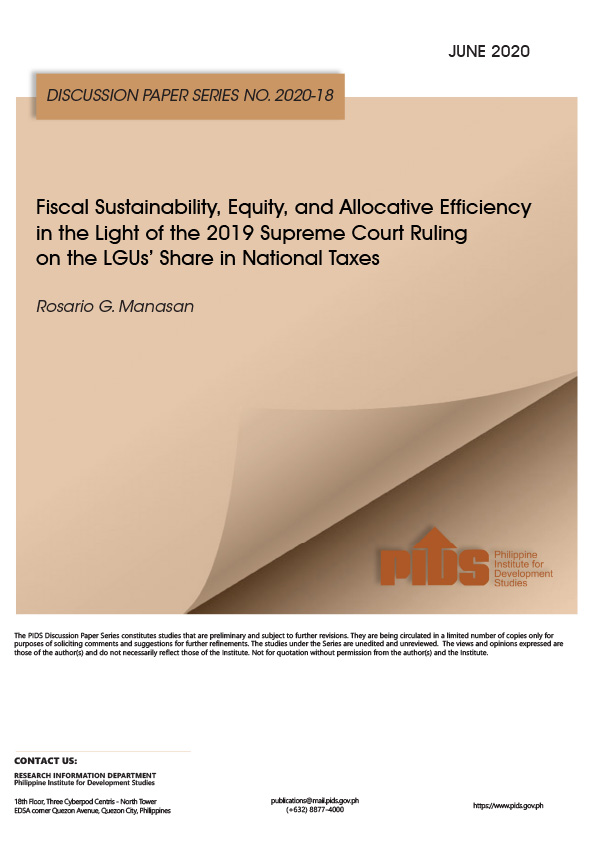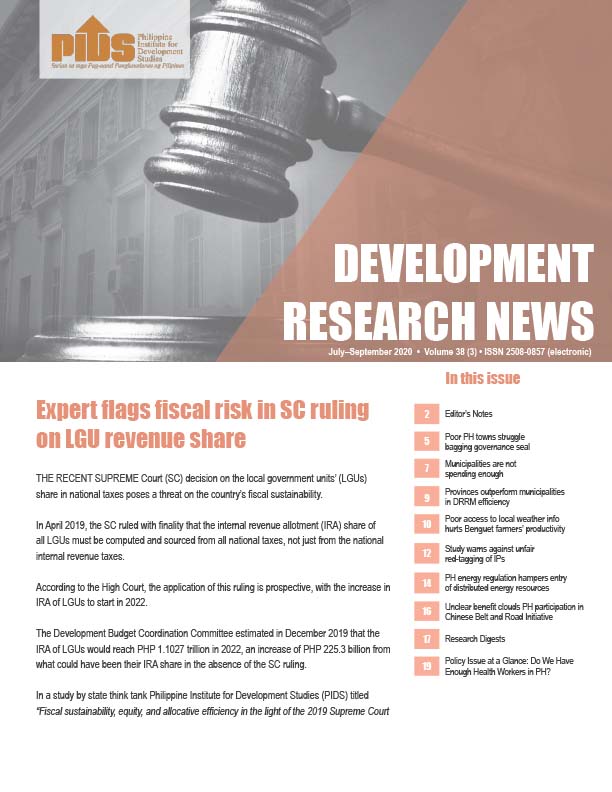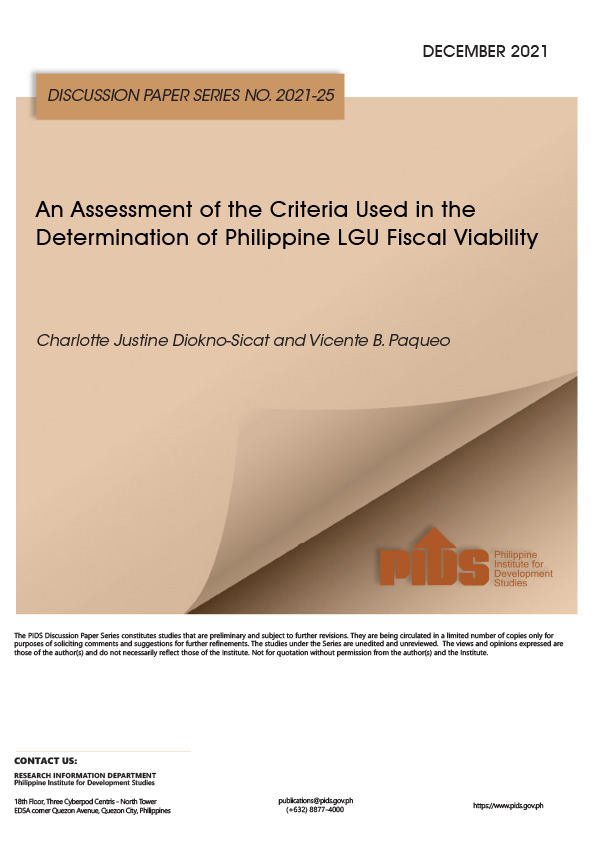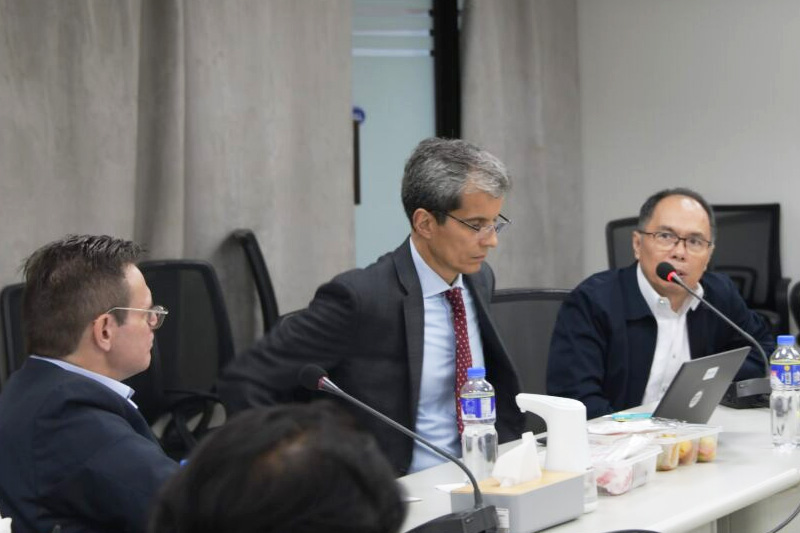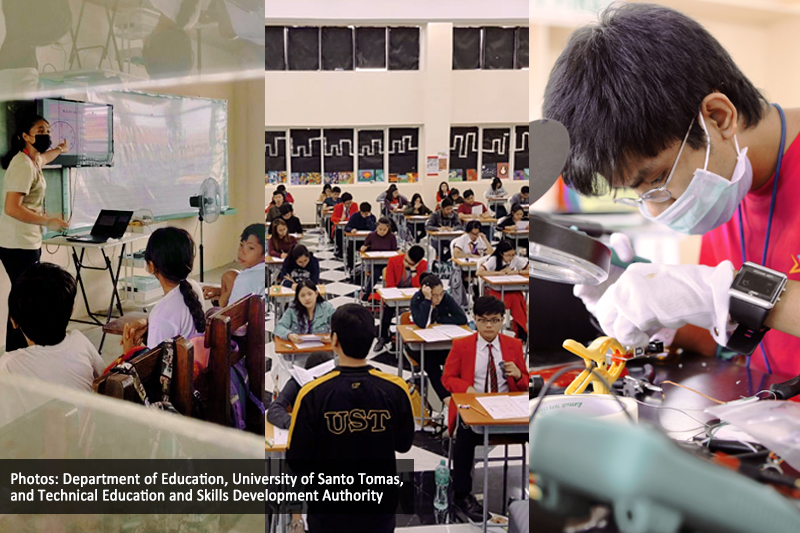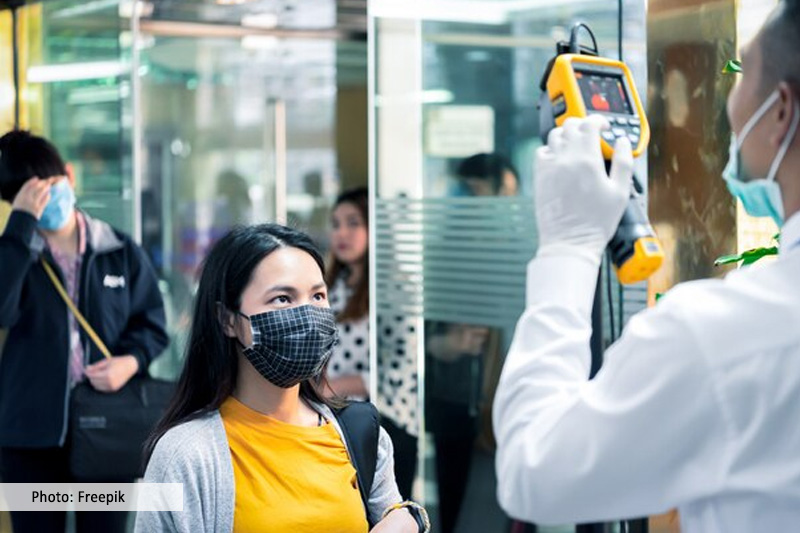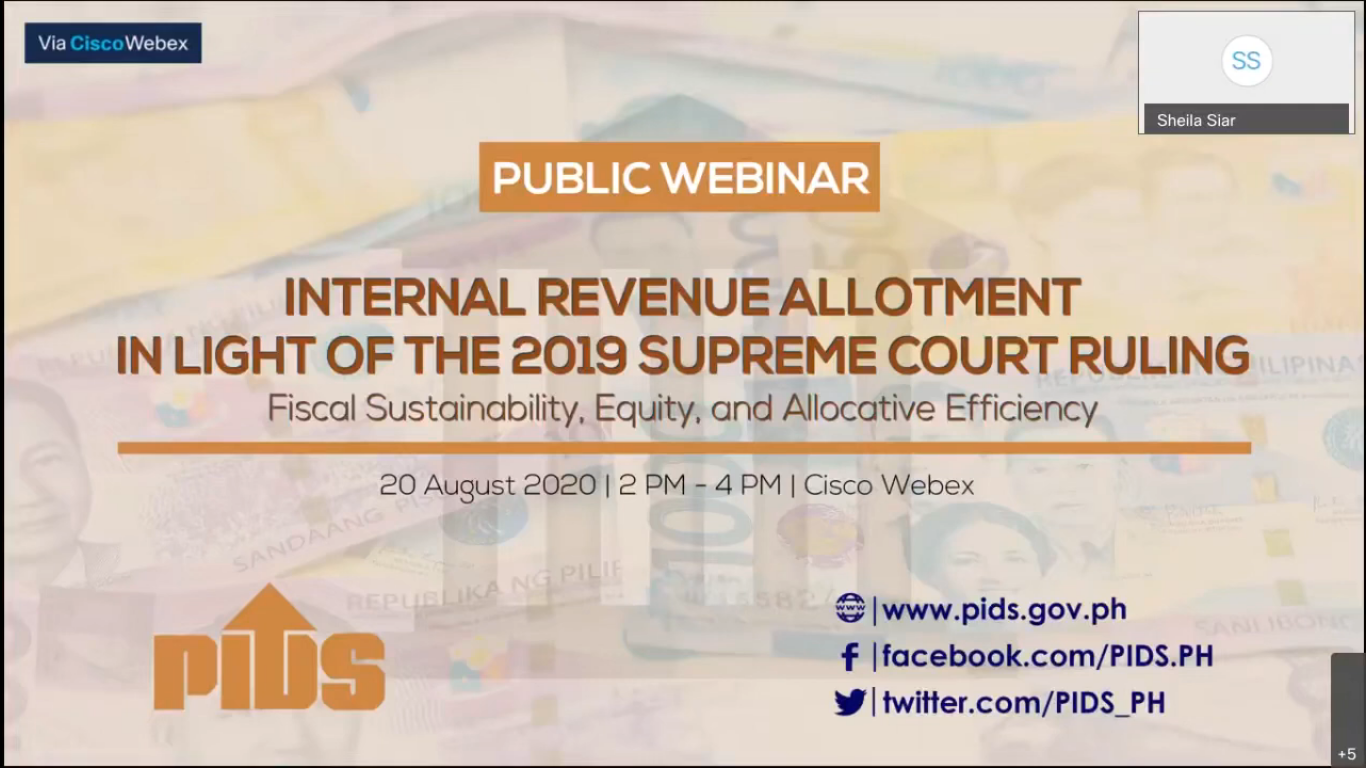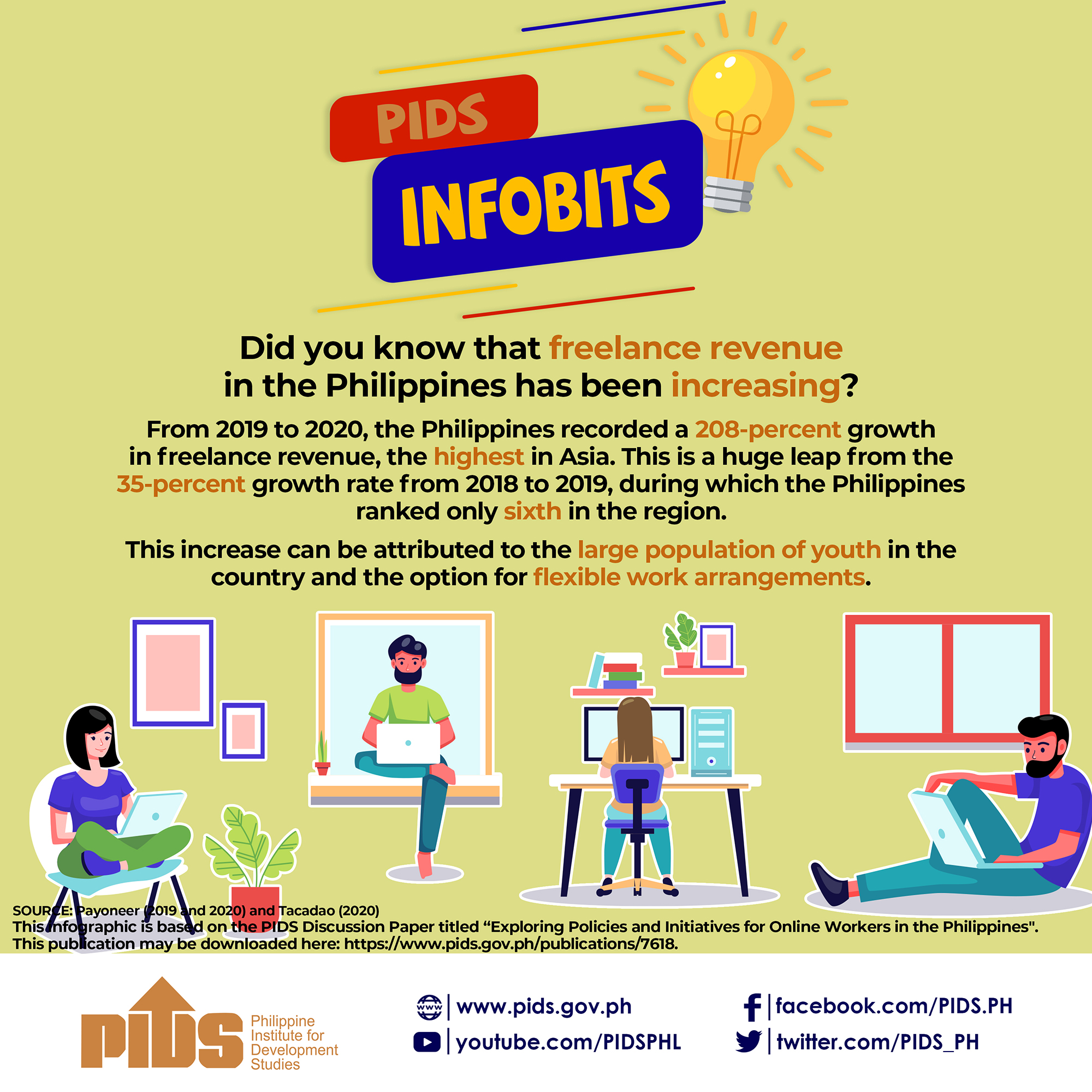The tax on the sale of services or goods needs to rise by a percentage point for each P25-billion proposed reduction in income tax, according to the Philippine Institute for Development Studies (PIDS), a government-owned think tank.
PIDS senior research fellow Rosario G. Manasan emphasized this point in a study titled "Comparative Assessment of Various Proposals to Amend the Personal Income Tax.”
Manasan said augmenting government revenues is necessary, because of the financing needed to improve infrastructure and achieve the Sustainable Development Goals (SDGs).
"The need for more high-quality infrastructure services to sustain the growth momentum and the need to improve access to better-quality basic social services given the government’s mantra of inclusive growth and the thrusts of the newly minted SDGs necessarily expand the country’s financing requirements,” Manasan said.
Manasan explained that since VAT is a consumption tax, it taxes even nonwage-income earners such as the self-employed or those that generate income through the practice of a profession.
Manasan estimated the effective personal income-tax rate on wage income was significantly higher at 5.3 percent, compared to the effective personal income-tax rate on self-employed and professionals at 1.5 percent using 2014 data.
Manasan’s data showed the effective tax rate of the self-employed and professionals have been consistent at 1.5 since 2012, whereas the effective tax rate for wage earners has been increasing to 4.9 percent in 2012, 5 percent in 2013, and 5.3 percent in 2014 from 4.7 percent in 2011.
"This advantage is important, considering the large difference in the effective personal income-tax rate on wage vis nonwage income and the implied greater evasion in the nonwage income sector,” Manasan said.
There are currently six proposals from both houses of Congress, as well as the private sector through the Tax Management Association of the Philippines (TMAP).
The income tax bills at the Senate are Senate Bill (SB) 716 by Sen. Ralph G. Recto; SB 1942 by Sen. Bam Aquino; and SB 2149 by Sen. Juan Edgardo M. Angara.
Manasan estimated that SB 716, or the Recto bill, should result in a revenue loss of P54 billion, or 0.4 percent of GDP in 2014.
"[This is] roughly equal to the incremental revenues from the amendment of the excise tax on alcohol and tobacco products,” Manasan said. The estimated revenue loss arising from the implementation of SB 1942, or the Aquino bill, total P71 billion or 0.6 percent of GDP in 2014.
Manasan said, however, that implementing SB 2149, or the Angara bill, should result in a small revenue gain worth P10.43 billion, or 0.08 percent of GDP during the first year of its implementation. This was because the bill imposes a higher effective tax on taxpayers whose taxable income fall within the P70,000 to P180,000 range.
Pursuing the Angara bill, meanwhile, should result in estimated revenue loss of P19.7 billion in the second year and P61.47 billion in the third year.
On the other hand, there are two such bills at the House of Representatives: House Bill (HB) 4829 by Rep. Romero S. Quimbo of Marikina City and HB 5401 by Rep. Neri Colmenares and Rep. Carlos Isagani Zarate of Bayan Muna.
The revenue loss under HB 4829, or the Quimbo bill, was estimated to equal P131 billion or a percent of GDP in 2014.
Implementing HB 5401, or the Colmenares-Zarate bill, should result in revenue loss of P232.12 billion, or 1.84 percent of GDP. The private sector proposal through the TMAP, meanwhile, should result in a revenue loss of P223 billion, or 1.76 percent of GDP in 2014.
"The estimated revenue losses arising from the TMAP proposal and HB 5401 are, respectively, roughly equal to 83 percent and 86 percent of actual BIR [Bureau of Internal Revenue] collection from the personal income tax in 2014,” Manasan said.
"It is notable that under the TMAP proposal only taxpayers in the ninth and 10th decile will actually be subjected to the personal income tax, while under HB 5401 only taxpayers in the 10th decile will actually be subjected to the personal income tax,” she added.
Apart from the VAT, Manasan said the proposal of the Department of Finance to amend the bank-secrecy law should help enable the BIR to catch tax cheats.
Another way to offset the projected revenue loss from proposals to amend the personal income tax is to increase the excise tax on petroleum products.
Other possibilities, Manasan said, include an increase in the road user’s tax or the motor vehicle user charge.
These two measures were also expected to have a positive impact on the environment through reduced pollution and congestion.//
VAT hike to augment revenue losses from income-tax cut—PIDS

